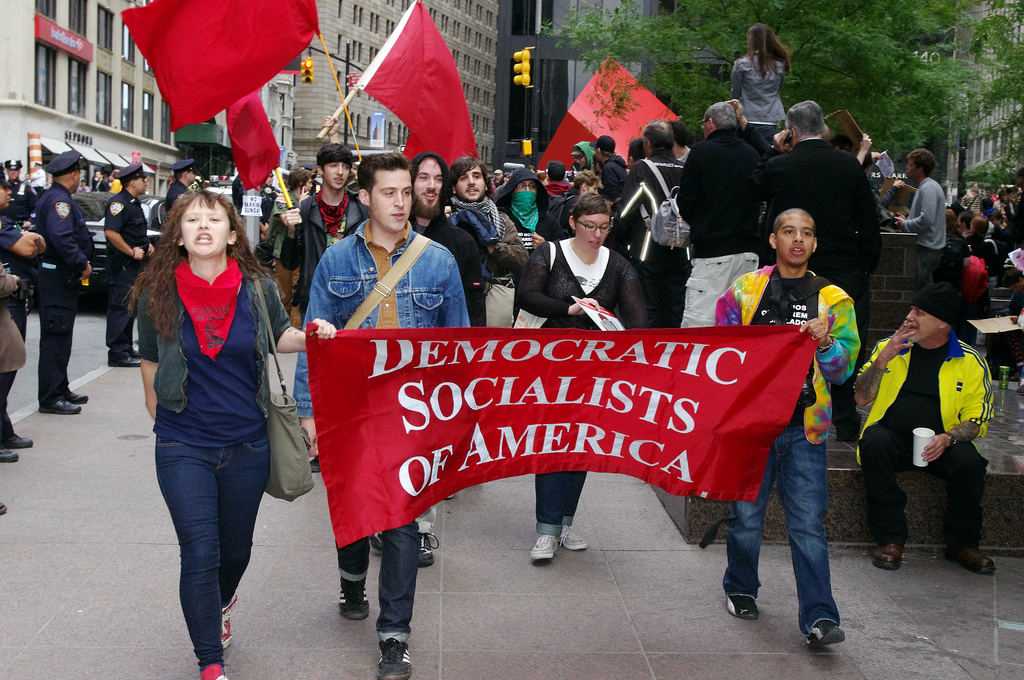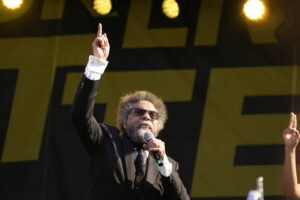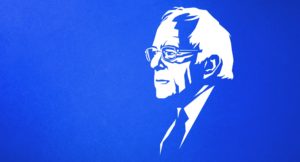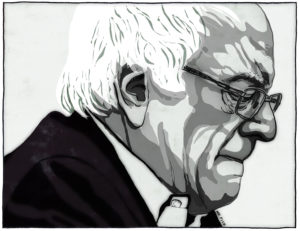Democratic Socialists of America Win Big for a Small Party
For a group with little brand-name recognition in the recent past, the party posted some surprising victories in the November elections. David Shankbone / CC BY 2.0
David Shankbone / CC BY 2.0
This Q&A is part of Sarah Jaffe’s series Interviews for Resistance, in which she speaks with organizers, troublemakers and thinkers who are doing the hard work of fighting back against America’s corporate and political powers. This interview has been edited for length and clarity.
For a group with very little brand-name recognition in the very recent past — the Democratic Socialists of America posted some surprising wins in the November elections. Building on the energy of Bernie Sanders’ 2016 campaign, the group, which notes that it is “a political and activist organization, not a party,” is growing. It fielded a number of candidates in recent races and plans for a greater presence in the midterm elections. Sarah Jaffe spoke with David Duhalde, the group’s deputy director.
Sarah Jaffe: You had a pretty successful election night. Tell us what you were thinking when you started hearing the results come in.
David Duhalde: I will be quite honest that a lot of us were maybe deeply affected by 2016 were maybe not as optimistic as we should have been. I was speaking at a conference for the European left in Belgium and I was many hours ahead. I thought, “I am going to go to bed and I will wake up and I will see how we did.” I didn’t want to stay up and lose sleep. Then, I awake to a flurry of text messages and Facebook messages: “Oh my God! Lee did it!” referring to Lee Carter in Virginia. And, “Oh my God! J.T. Scott won in Massachusetts!” I didn’t burst into tears, but I was fighting back tears. It was truly one of the best experiences of my life.
SJ: Was there a particular win you were really surprised and excited by?
DD: I am going to be uncreative and say the Lee Carter race in Virginia, partly because as I work out of the Washington, DC office of DSA. I was able to meet Lee for the first time at a meeting we had after the election. He spoke and he impressed me deeply. Then I went down to volunteer. But when you volunteer, it is hard to get a read sometimes on the crowd. I was very hopeful, of course, and he had hired some great DSA members who were all under 23, but he was taking on this huge incumbent with a war chest. I was very worried.
Even though I knew we were doing everything right, you can do everything right and it doesn’t matter. The J.T. Scott race in Somerville, Massachusetts was a surprise too. I actually lived in Somerville and I knew the machine. I remember how difficult it was to beat them and how recalcitrant some of the residents could be toward new people and change. So, even though it is a Democratic stronghold, to see him take on this incumbent, who I know definitely had a base and had been there for 15 years, was great. He did it through blood, sweat and tears. His win was truly overwhelming. It was truly great to see all those grass-roots campaigns led by DSA, but we were also working with Our Revolution and other allies, especially in the Carter race, such as Planned Parenthood.
SJ: That is interesting you mention those two in particular because one of these was against, of course, a Republican incumbent. The other one was against the Democratic Party machine. I would love to hear you talk about that aspect of this; that in some places you were going up against these right-wing people and in other cases you are taking on centrist Democrats.
DD: We ultimately endorsed six candidates nationally — some of whom were running against Democrats, like Ginger Jentzen, who was in Socialist Alternative. Others, like Jabari Brisport, who is a Green, ran against the machine Democrats. Most of them were Democrats themselves and were running either in primaries like Khader Al-Yateem in Brooklyn and Tristan Rader who won, as well, in Lakewood, Ohio.
SJ: Take us back a little bit to the thinking and the planning around electoral strategy this year. You had the conference — tell us how the strategy came together and how people within DSA now are thinking about electoral politics.
DD: It is a very fascinating process for us and really one that evolved over the course of the year after Bernie Sanders first declared his intention for the presidential primary. DSA has come out of a movement that had really wanted to make the Democratic Party a Social Democratic party and a genuine progressive party. With the rise and success of neoliberalism in the 1990s and Clinton, both Bill and Hillary, and so many times Barack Obama, it was very clear that the idea of changing the Democratic Party was not really in the cards.
So, DSA shifted away from electoral politics and its bread and butter mission and had focused on social movement work. But, Bernie Sanders really energized people. So, DSA put a tremendous amount of energy and support into his candidacy. We started pretty small. Then, khalid kamau came out of nowhere and “Let’s work with you.” [Following the Yoruban African tradition, kamau prefers the lower-case spelling of his name.] That is when we started realizing we could build a national program, using khalid’s campaign as a model. We called dozens of chapters and got them to phone bank for him. People were excited to work for this amazing member and fellow Socialist. That made us realize we could really start building Socialist electoral power.
SJ: What did you require from candidates to get a DSA endorsement?
DD: We created a three-point criteria to receive a DSA endorsement. You had to be running as a Socialist. You didn’t have to be a DSA member, Ginger Jentzen is not. But you had to be a Socialist and be okay with talking about it, even if it wasn’t in the forefront of your campaign. It was very important to us that you had to have the support of a local DSA chapter. We don’t want to be that kind of DC or national group that kind of parachutes in and tells people who they are going to be supporting.
The third thing was we really wanted people to show us that they had a pathway to victory. We didn’t need somebody to say, “I am 100 percent a shoo-in to win,” but we wanted people to really show us they have been thinking about what were the steps to win their races. We wanted people who really were going to be out there hitting the pavement and talking to voters. From this, we were able to select six candidates. Then, really built a national infrastructure to support them through our base. Social media is a huge asset, especially for local races trying to draw national and potentially international attention and donations. But also, using our network of hundreds of volunteers and thousands of members to do phone banking and to do door knocking.
SJ: How does the broader post-Bernie spectrum of groups and organizations fit together in this moment? There were a bunch of Our Revolution endorsed candidates, there were some DSA endorsed candidates, there were other local people who come out of that movement all over the country. I am wondering how you think this movement, such as it is, fits together. Where are some of the tensions?
DD: I have been rather pleasantly surprised about how well the different post-Bernie formations have been doing and working together to keep this political revolution going. We have a very good working relationship with Our Revolution — sharing information and talking about candidates. We also have an affiliation program where DSA chapters can be the local Our Revolution chapter. Socialist Alternative, which is one of the other major socialist groups worked with us on Ginger Jentzen’s campaign. Brand New Congress is looking at people congressional races, along with Justice Democrats. It’s very much “You help me and I will help you.” That makes me incredibly optimistic for 2018.
SJ: I want to wrap up by talking about 2018 and what is coming down the pike. This is going to be the congressional elections. What are you guys working on so far?
DD: Well, we have not made any endorsements yet. What we are looking for 2018 is to expand our network of national volunteers who can then really work with local volunteers. On of the things that I appreciate about the new DSA, the one post-Trump election, is how still committed it is to being flexible and being willing to work around local conditions. I think that is what is going to make a modern DSA thrive. It is not necessarily having a one-size-fits-all model, but really allowing this grassroots chapters who are autonomous to work with national to do what fits them. We are learning the from good lessons from how the right wing has built such a great pipeline of local candidates.
We are also looking at how we can support and hold candidates accountable after the election. For example, it was very exciting coming out of our convention, we have a strict policy we only endorse pro-choice candidates. Helping DSA chapters think about how they set their own standards for endorsements, I think, will be really key.
Of course, prioritizing electing Socialists will be our niche compared to other post-Bernie groups and our focus will still be advancing the Democratic Socialist agenda more explicitly.
SJ: How can people keep up with you and with DSA’s electoral efforts?
DD: You can follow DSA at @DemSocialists on Twitter. But, if people have any questions or comments or just want to get endorsements, learn how the process works, I can always be reached at [email protected] and that will go straight to me. We are going to be putting out a website pretty shortly about our electoral work. People should be on the lookout for that website at www.DSAUSA.org.
Your support matters…
Independent journalism is under threat and overshadowed by heavily funded mainstream media.
You can help level the playing field. Become a member.
Your tax-deductible contribution keeps us digging beneath the headlines to give you thought-provoking, investigative reporting and analysis that unearths what's really happening- without compromise.
Give today to support our courageous, independent journalists.








You need to be a supporter to comment.
There are currently no responses to this article.
Be the first to respond.